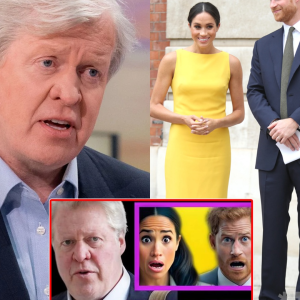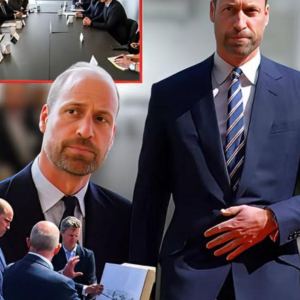It was never about the trophies. Not really. Not for Lewis Hamilton.
For nearly two decades, he has been the face of Formula One—the fiercest competitor, the boldest voice, and the most polarizing figure the grid has ever known. With seven world titles and over 100 race wins, Hamilton’s resume reads like mythology. But in a rare, emotionally raw new interview, he lifts the curtain on what that fame has cost him.
“It almost broke me,” he says.
Behind the glitz of champagne podiums and Monaco yachts, Hamilton reveals that his journey has been haunted by what he calls the “eight demons” of elite motorsport. Demons that nearly derailed his career—and his identity.
What are they? Why now? And why does it feel like something in him has finally snapped?
The Price of Speed: Hamilton’s Battle With His Own Mind
The first demon, Hamilton says, was silence—the kind that follows you even when the cameras flash. “I was taught early on to just nod, perform, and never complain,” he recalls. As the only Black driver in F1 history, Lewis Hamilton felt the weight of representation—and expectation—with no one to share it with.

“When I joined McLaren, I was just 22. And I was already being told who I should be. Not just as a driver, but as a person. They gave me a seat—but they tried to mold my voice.”
The second demon was perfectionism. The kind that isn’t driven by excellence but by fear. “I felt if I made even one mistake, they’d say I didn’t belong.”
This fear followed him from paddock to podium, into the media room, and back to the simulator. It manifested in sleepless nights, overtraining, and constant self-doubt.
“I wasn’t racing to win. I was racing not to fall.”
The third demon was comparison. As Hamilton surged through the ranks, he found himself constantly stacked up against predecessors and peers—Senna, Schumacher, and Alonso—not just in terms of skill, but also personality.
“It felt like I was never allowed to just be myself. I was either ‘too flashy’ or ‘too quiet.’ I could never win off the track.”
The fourth demon, he says, was isolation. Not just physical, but emotional.
“You spend hundreds of days a year traveling. On planes. In hotel rooms. On track. And it feels like you’re everywhere and nowhere at the same time.”
But perhaps the most chilling of all was the fifth demon: invisibility.
Despite being one of the most recognizable athletes on the planet, Hamilton says he often felt unseen.
“There were seasons where I won five or six races in a row—and the headlines would still question my legitimacy. Or praise the car more than the driver. It was like I wasn’t allowed to be great.”
His voice softens.
“They made me feel like a visitor in a house I built.”
When the Helmet Comes Off: Hamilton’s Struggles With Loneliness, Legacy, and Identity
The sixth demon was loneliness.
“People see the entourage, the travel, the fans. What they don’t see are the hotel rooms. The long nights after races when you replay everything. Every turn. Every mistake. Every silence.”
Lewis Hamilton admits that he went nearly two years without having a real conversation that didn’t involve strategy, sponsorship, or media.
“I didn’t even know who I could trust. Not fully. I became a version of myself built for the cameras. And I started to lose the original.”
The seventh demon? Legacy.
“Everyone talks about greatness. But what happens when the helmets are hung up? When does the press stop calling?”
Hamilton confesses he was terrified of disappearing—of becoming a footnote rather than a force.
“There were times I wondered if I was just a chapter in someone else’s book. Not my own.”
But perhaps the eighth and most personal demon was family.
“I missed births. I missed funerals. I missed birthdays. I missed life.”
He takes a long pause.
“And sometimes, even when I was there… I wasn’t really there. Racing was everything. Until I realized it had taken everything.”
He mentions a time in 2018, at the height of his dominance, when he stood alone in a hotel in Shanghai. “I had just won back-to-back races. But I looked in the mirror and didn’t recognize the person staring back. That scared me more than any race ever did.”
He says the moment pushed him to therapy. Not immediately—but eventually. He began working with a sports psychologist who helped him redefine the difference between identity and performance.
“For a long time, I believed I was only as good as my last lap. Now I know that’s not true.”
Hamilton also began journaling and meditating—two habits that remain part of his routine even during race weekends. “Some mornings I wake up with my heart pounding, full of pressure. I write it down. I sit with it. And then I let it go.”
He says he’s also learned the power of saying no. “For years, I said yes to every brand, every event, every request. Now I guard my peace like I guard pole position.”
Why He’s Speaking Now—And What Comes Next
So why now? Why unburden after all this time?
Hamilton says it’s because he sees young drivers—and young fans—walking the same path.

“They look up to me and think I’m bulletproof. I’m not. None of us are. And they deserve to know that.”
In partnership with mental health organizations, Lewis Hamilton is launching an initiative focused on emotional wellness in elite sports. The campaign, titled “Beyond the Grid,” will feature stories from athletes, engineers, and insiders about the pressures that come with greatness.
“This sport saved my life. But it also nearly stole it.”
The project will include a documentary series and an interactive online platform where current and former drivers can anonymously share experiences—from burnout to performance anxiety to loss of identity.
“It’s not just for drivers,” Hamilton adds. “It’s for mechanics. For engineers. For people in the garage who don’t get interviewed—but carry the same burdens.”
The F1 community has already begun to respond. Several former drivers, including Nico Rosberg and Mark Webber, have voiced their support for Hamilton’s openness. “It’s brave and it’s needed,” Rosberg tweeted. “Mental health in this sport has been ignored for too long.”
Hamilton says he’s also received private messages from younger drivers thanking him for “saying the quiet part out loud.”
And yet, Hamilton isn’t done. Not yet. With a move to Ferrari on the horizon and one final chapter to write, he says he’s racing now for something else entirely.
Peace.
“I used to race to prove people wrong. Now I race to prove I’m still here. Still whole. Still me.”
And as he straps into one of the most iconic red cars in history, there’s a look in his eye that’s unfamiliar—but unmistakable.
It’s not the fire of vengeance. It’s the quiet of survival.
Because sometimes, the loudest win is the one no one sees coming.





